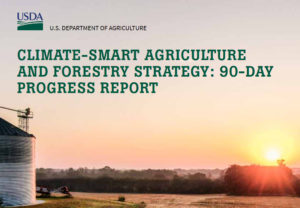 Biodiesel is on a mission to save the planet from carbon and other evil greenhouse gases and the Minnesota Soybean Research & Promotional Council (MSR&PC) has kicked off a new campaign that highlights the super powers of biodiesel with colorful bus wraps and a new website – mnbiodiesel.com.
Biodiesel is on a mission to save the planet from carbon and other evil greenhouse gases and the Minnesota Soybean Research & Promotional Council (MSR&PC) has kicked off a new campaign that highlights the super powers of biodiesel with colorful bus wraps and a new website – mnbiodiesel.com.
MSR&PC CEO Tom Sluencka says the intent of the biodiesel bus wraps is to show Minnesotans that renewable fuels are already packing a serious punch when it comes to cutting greenhouse gas emissions. “Biodiesel is reducing greenhouse gas emissions by over 80 percent, reducing particulate matter by over 47 percent, and that’s what we consider smog, and we’re doing it with a fuel that’s raised and produced right here in Minnesota,” said Slunecka.
At a time when there is a strong push for electric vehicles, Slunecka says they are proud that the Metro Transit system chose biodiesel to reduce emissions. “They realized that with the cold temperatures in Minnesota and the length of some of their routes that big, heavy batteries in their buses were just not going to get the job done,” he said. “So, instead they decided to use the original advanced biofuel, which is biodiesel.”
Slunecka discusses the new campaign and the superhero benefits of biodiesel in this interview.
MN Biodiesel Superhero Campaign - MSR&PC CEO Tom Slunecka (9:33)


 Legislation was introduced this week in both the House and the Senate that would
Legislation was introduced this week in both the House and the Senate that would  It’s a bird, it’s a plane, it’s … Biodiesel!
It’s a bird, it’s a plane, it’s … Biodiesel!
 The
The  USDA’s 90-Day
USDA’s 90-Day  The U.S. Court of Appeals for the Tenth
The U.S. Court of Appeals for the Tenth  The 3th annual
The 3th annual  Exports of U.S. ethanol increased to 133 million gallons (mg) in March, the second-largest volume in a year and up 31% from February’s dip,
Exports of U.S. ethanol increased to 133 million gallons (mg) in March, the second-largest volume in a year and up 31% from February’s dip,